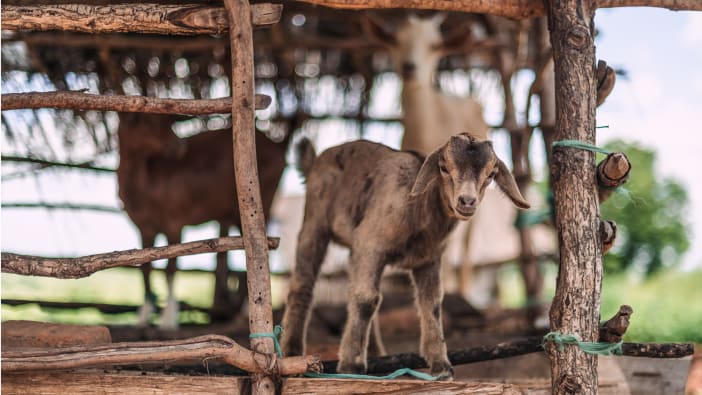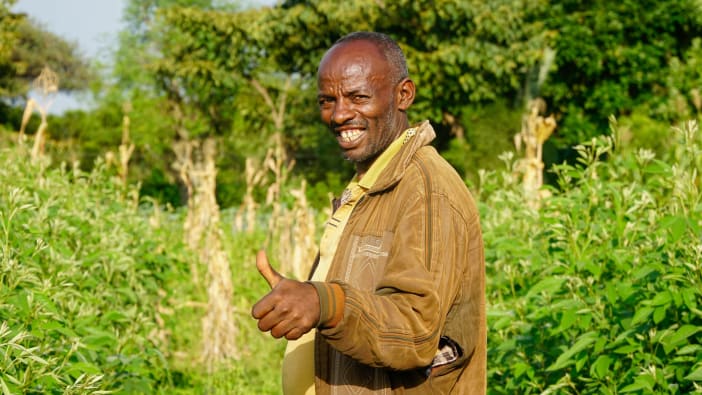by Dr Avijit Haldar.
The word parasite means ‘one who eats at another’s table’. In other words, a living thing which lives off another animal (or plant). Livestock parasites are the small pests which live by taking nutrients (usually blood) from their animal host.
There are two kinds of parasites, those which live inside an animal’s body, such as worms and liver flukes, and those which live outside on the skin. This article looks only at external parasites such as mites, ticks and lice.
External parasites are an enormous problem. In India, for example, it is difficult to estimate the actual financial loss, but these parasites reduce milk and meat production, reduce growth rate, reduce strength and ability to work, damage skin or wool and may even cause death. Livestock may become thin with a rough coat and skin sores.
In addition, ticks carry a wide range of diseases such as babesiasis (red water), tick-borne encephalitis, anaplasmosis and others.
Rather than waiting until the problem of external parasites becomes serious, farmers should regularly treat their livestock to prevent any infestation of parasites.
Preventive action
- Seal with cement or mud all cracks in the floor and walls of livestock housing.
- Keep housing clean each day.
- Spray housing with an appropriate pesticide every two weeks if possible.
- Rotate the land where livestock graze.
- Wash animals regularly.
- Cut hair regularly for sheep.
- Make ash from dry neem leaves, mix into a paste with water and smear this on the animal every two weeks to prevent parasites.
- If the neem treatment is not effective, spray or dip the animals with appropriate pesticide.
Use of pesticides
Various chemicals are widely used to control external livestock parasites. Early chemicals included sulphur, tobacco and arsenic compounds. These were replaced in the 1940s by chemicals such as DDT, Dieldrin and Lindane (chlorinated hydrocarbons) – now known to be very dangerous both to livestock and humans. These are now banned in most countries.
Organophosphorus chemicals such as Malathion and Diazinon were then developed and are still in use, though great care must be taken to avoid any contact with skin, eyes or mouth.
Another group of chemicals is called Organocarbamates, such as Carbaryl and Baygon. These are not so toxic and are in regular use.
The safest of all chemicals are known as synthetic pyrethroids, such as Fenvalerate and Deltamethrin. These are very effective but also much safer than any of the above chemicals. However, they are also very expensive.
Applying chemicals to livestock
Dipping This is very effective if large numbers of livestock need to be treated. If this is just for small animals such as sheep and goats, a 44 gallon drum can be used and the animals quickly lifted in and out.
Alternatively, a concrete bath can be built – especially if larger animals are to be dipped. Dipping should be done in the early morning, so that animals are not immediately exposed to hot sun. Dipping is not recommended if there is likely to be heavy rain soon after, as the chemical may be quickly washed off.
Spraying is widely used and effective, especially if not too many livestock are to be treated. If no spray pump is available then the pesticide can be applied with a paint brush or a cloth or sponge on the end of a stick.
Cattle spraying at the Diocesan demonstration farm, North Kigezi, Uganda. Note the lack of protective clothing and check with the list below to see what they should be wearing.
Dusting Here the chemical is applied as a fine dust. This is used especially for small livestock and poultry (see illustration above). Dusting is not very effective against ticks as the dust is soon lost, but it does control lice and mites
Injection There is a new form of pesticide known as a systemic pesticide such as Ivomac. This is simply injected into the animal.
Always use the recommended dosages for chemicals. Ask for help if you are not sure. Using too high a concentration will not kill more parasites. Instead, it may kill the animal and make you ill.
Dr Haldar is a lecturer and researcher in Bidhan Chandra Krishi Viswavidyalaya, PO Kalimpong, Darjeeling, West Bengal 734 301, India.









